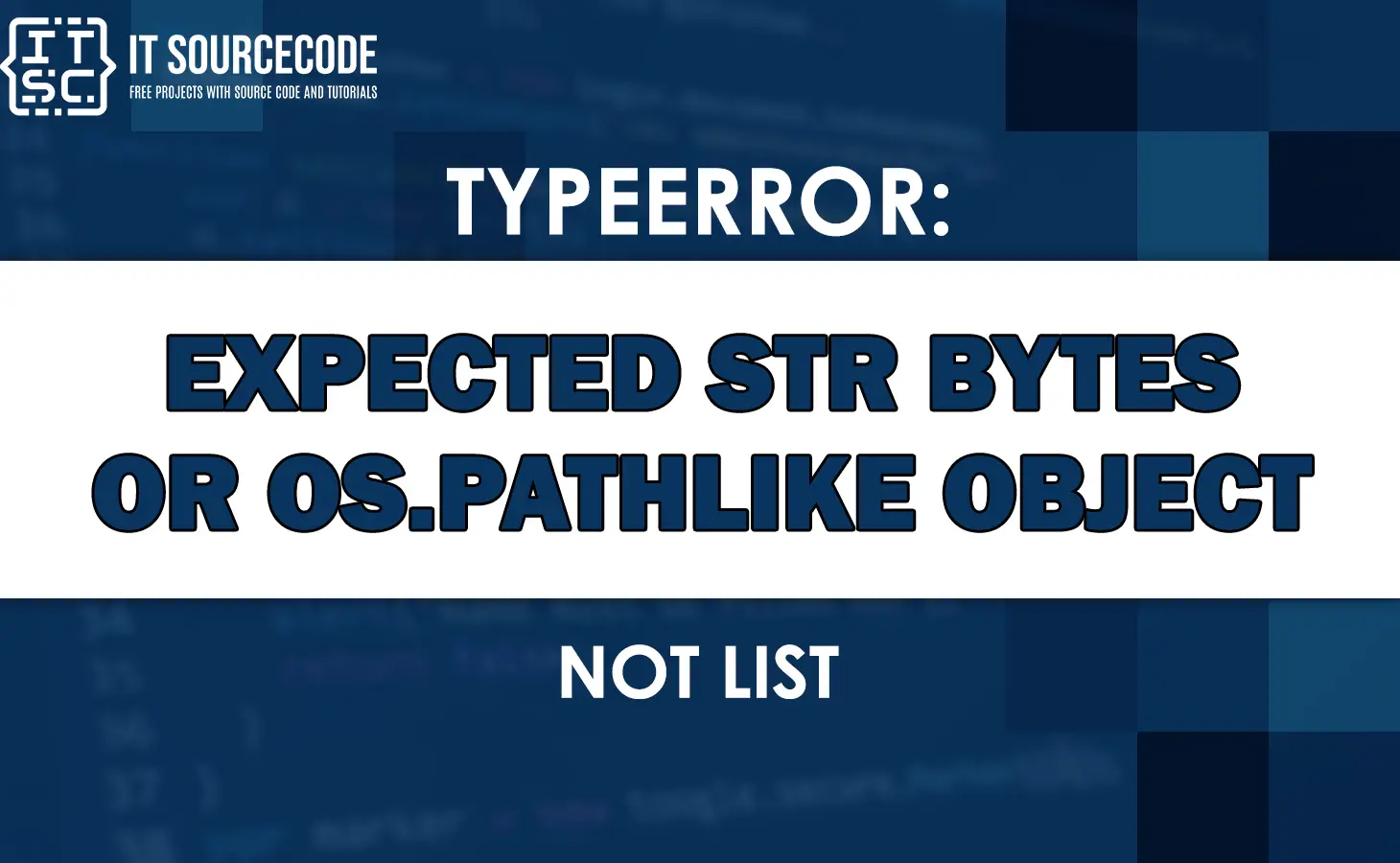In this article, we are going to be dealing with typeerror expected str bytes or os.pathlike object not list.
We will learn about this error, comprehend it, and discover a solution.
Let us start by knowing and understanding this error.
What is typeerror expected str bytes or os.pathlike object not list?
The typeerror expected str bytes or os.pathlike object not list is an error message that occurs in Python.
The cited error is triggered when we pass a list to a function or operation that expects a string, bytes, or path-like object.
What does this error mean?
This error means that the program received a data type that it did not expect.
Here is a sample code that triggers the error:
f_paths = ['/path/to/sample.txt', '/path/to/sample1.txt', '/path/to/sample2.txt']
with open(f_paths, 'r') as f:
file = f.read()
print(file)Error:
Traceback (most recent call last):
File "C:\Users\path\PyProjects\sProject\main.py", line 3, in <module>
with open(f_paths, 'r') as f:
^^^^^^^^^^^^^^^^^^
TypeError: expected str, bytes or os.PathLike object, not listTypeerror expected str bytes or os.pathlike object not list – SOLUTION
To fix the typeerror expected str bytes or os.pathlike object not list follow the guide below.
✔ Ensure that the input type we pass to a function or operation is the one it is expecting.
Iterate over the list, then apply the function to each path individually.
Do this if you pass a list of paths to a function that expects a single path.
Sample code
import os
paths = ['/path/to/sample.txt', '/path/to/sample1.txt', '/path/to/sample2.txt']
for path in paths:
os.remove(path)As an alternative, you can use the appropriate method to convert a list of routes into a string or bytes object if you need to give it to a function or operation.
Sample code
import os
paths = ['/path/to/sample.txt', '/path/to/sample1.txt', '/path/to/sample2.txt']
path_string = os.path.pathsep.join(paths)
with open(path_string, 'r') as f:
c = f.read()
print(c)See also: Typeerror expected str bytes or os.pathlike object not nonetype
Tips to avoid getting Typeerrors
The following are some tips to avoid getting type errors in Python.
- Avoid using the built-in data types in Python in the wrong way.
→ Be sure that your variables and data structures are using the correct data types.
- Always check or confirm the types of your variables.
→ To check the types of your variables, use the type() function.
This will allow you to confirm if the type of your variable is appropriate.
- Be clear and concise when writing code.
→ Being clear and concise when writing your code can help you avoid typeerrors.
It is because it will become easier to understand.
- Handle the error by using try-except blocks.
→ Try using the try-except blocks to catch and handle any typeerror.
- Use the built-in functions of Python if needed.
→ Use built-in functions such as int(), str(), etc. if you need to convert a variable to a different type.
FAQs
Typeerror is an error in Python that arises when an operation or function is applied to a value of an improper type.
This error indicates that the data type of an object isn’t compatible with the operation or function being used.
Python is one of the most popular programming languages.
It is used for developing a wide range of applications.
In addition, Python is a high-level programming language that is used by most developers due to its flexibility.
Conclusion
In conclusion, the typeerror expected str bytes or os.pathlike object not list is an error message that occurs in Python.
You can fix this error by ensuring that the input type you pass to a function or operation is the one it is expecting.
By following the guide above, you will surely solve this error quickly.
That is all for this tutorial, IT source coders!
We hope you have learned a lot from this. Have fun coding!
Thank you for reading! 😊

